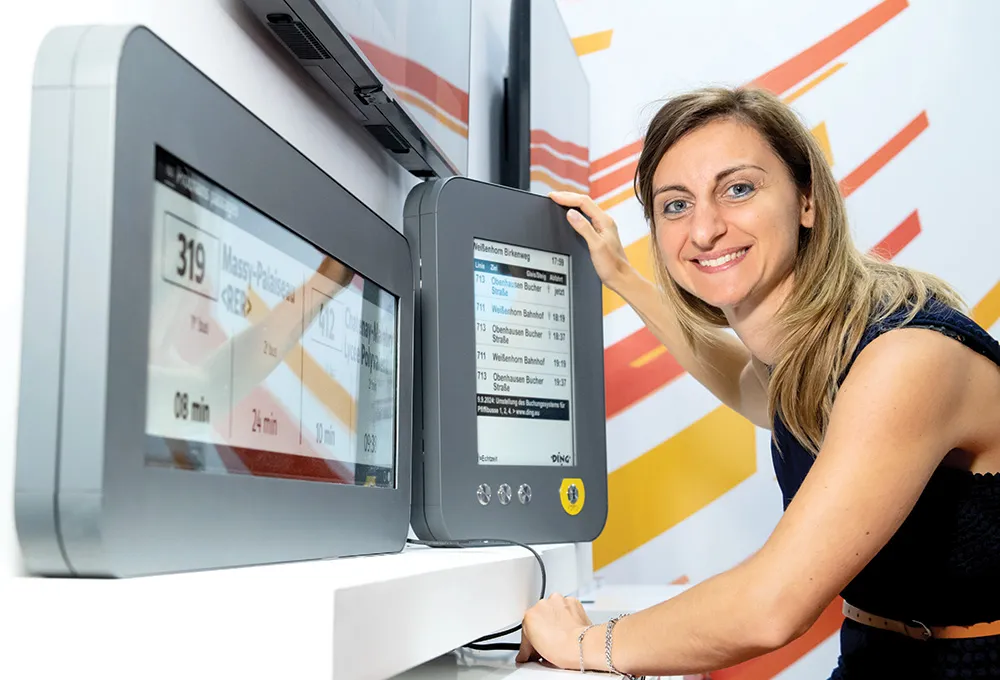The iMobility Challenge presented intelligent vehicle systems to policy makers, ITS professionals and the general public in Helsinki during the European ITS Congress. The highlight of the day was the participation of the Formula One driver, Valtteri Bottas, in an eco-driving competition.
The competition evaluated a short drive in Helsinki by the F1 driver giving him a ‘smart’ driving score, thanks to an on-board device monitoring the energy-efficiency of his driving style. Visitors then had the chance to
June 17, 2014
Read time: 2 mins
The iMobility Challenge presented intelligent vehicle systems to policy makers, ITS professionals and the general public in Helsinki during the 438 European ITS Congress. The highlight of the day was the participation of the Formula One driver, Valtteri Bottas, in an eco-driving competition.
The competition evaluated a short drive in Helsinki by the F1 driver giving him a ‘smart’ driving score, thanks to an on-board device monitoring the energy-efficiency of his driving style. Visitors then had the chance to take the same drive and compare their score to Bottas’ performance, while learning key techniques for driving in a more energy efficient manner.
Bottas said: “The road is not the race track, so when I drive in the city I aim to drive in a safe and efficient manner. It is great that modern technologies help drivers understand how their driving style affects their energy consumption, and make responsible driving fun.”
Of the event, FIA president Jean Todt said: “Innovative vehicle technologies, such as car connectivity, mark the start of a new era in mobility that will provide safer, greener and smarter driving experiences. I am happy that the FIA is coordinating the iMobility Challenge, a project which demonstrates a more intelligent vision for our daily mobility.”
Zoran Stančič, deputy director general of the1690 European Commission’s DG Connect said: “Digital technologies are key enablers for taking the next steps in realising truly cooperative Intelligent Transport Systems which connect vehicles and infrastructure so that they can communicate continuously. This will help cars to find the best routes, to avoid congestion and even to prevent collisions. Awareness campaigns are very useful and powerful tools to support the large-scale deployment of digital systems for safe, efficient and sustainable mobility. iMobility Challenge events are a great platform for this purpose."
Other test rides and demonstrations included autonomous braking by609 Volvo, self-parking cars by Citroën and 278 Ford, 838 Nissan and 278 Ford electric cars and additional driver monitoring tools demonstrated by Helpten and Driveco.
The competition evaluated a short drive in Helsinki by the F1 driver giving him a ‘smart’ driving score, thanks to an on-board device monitoring the energy-efficiency of his driving style. Visitors then had the chance to take the same drive and compare their score to Bottas’ performance, while learning key techniques for driving in a more energy efficient manner.
Bottas said: “The road is not the race track, so when I drive in the city I aim to drive in a safe and efficient manner. It is great that modern technologies help drivers understand how their driving style affects their energy consumption, and make responsible driving fun.”
Of the event, FIA president Jean Todt said: “Innovative vehicle technologies, such as car connectivity, mark the start of a new era in mobility that will provide safer, greener and smarter driving experiences. I am happy that the FIA is coordinating the iMobility Challenge, a project which demonstrates a more intelligent vision for our daily mobility.”
Zoran Stančič, deputy director general of the
Other test rides and demonstrations included autonomous braking by








